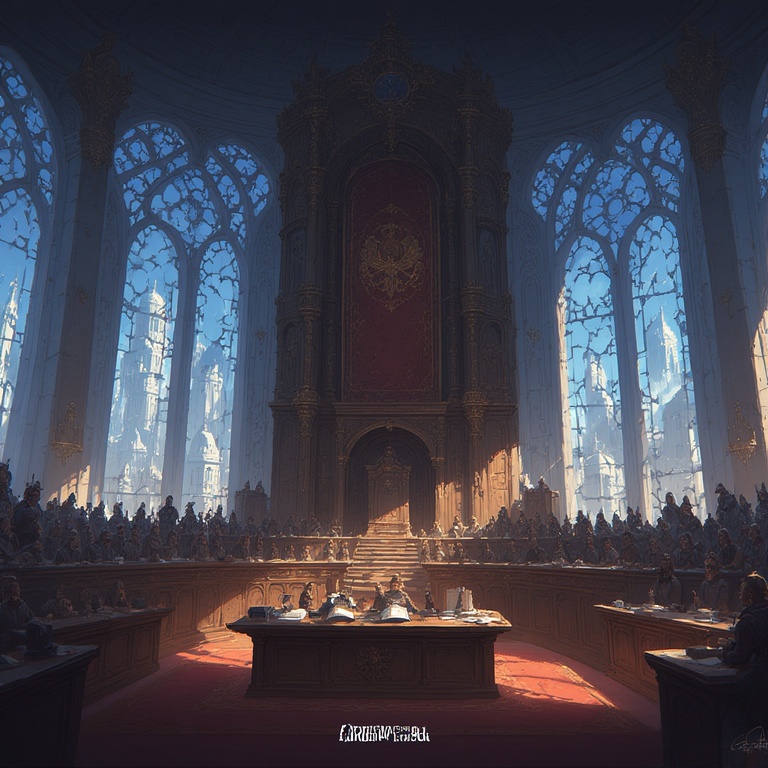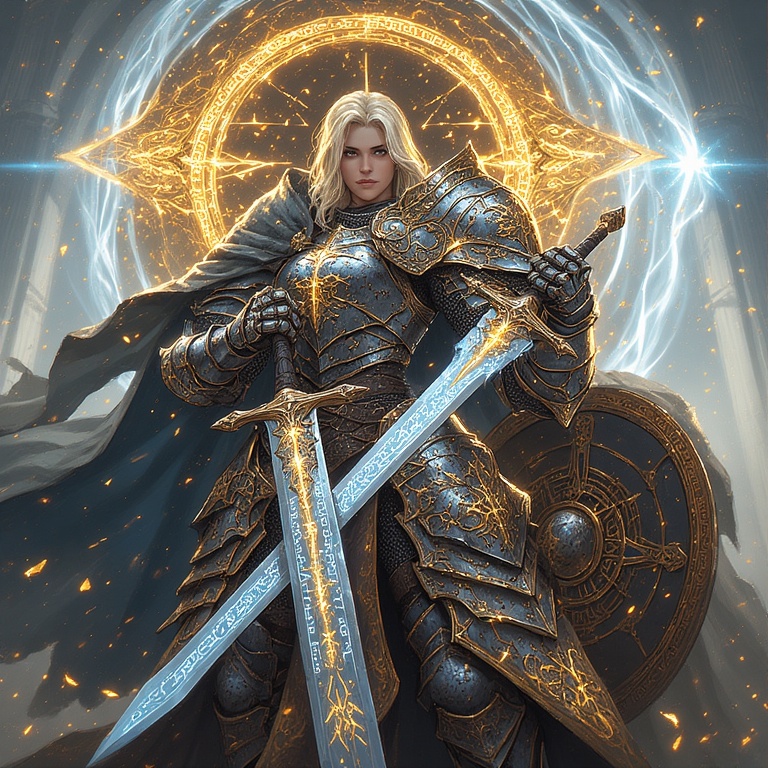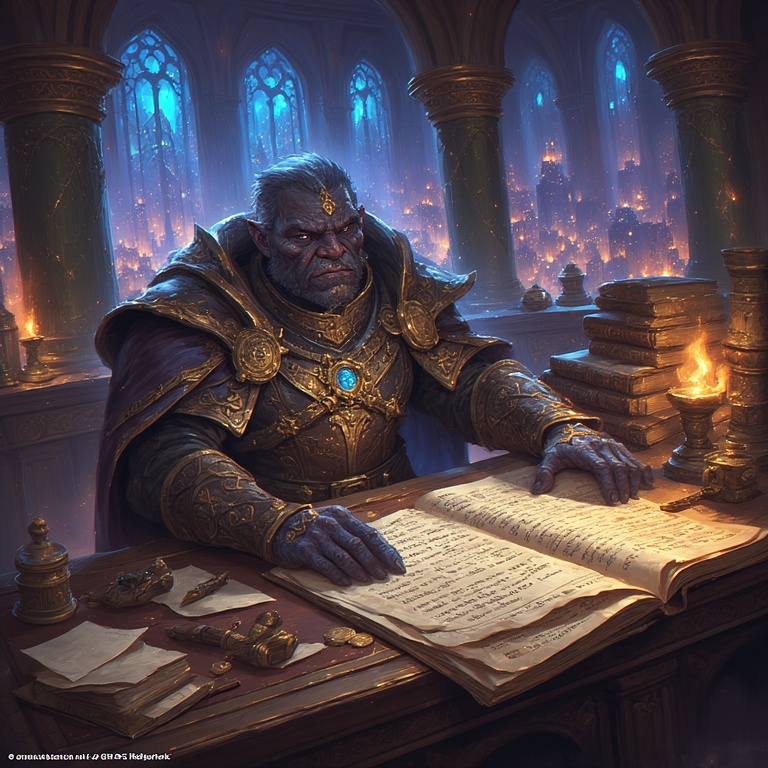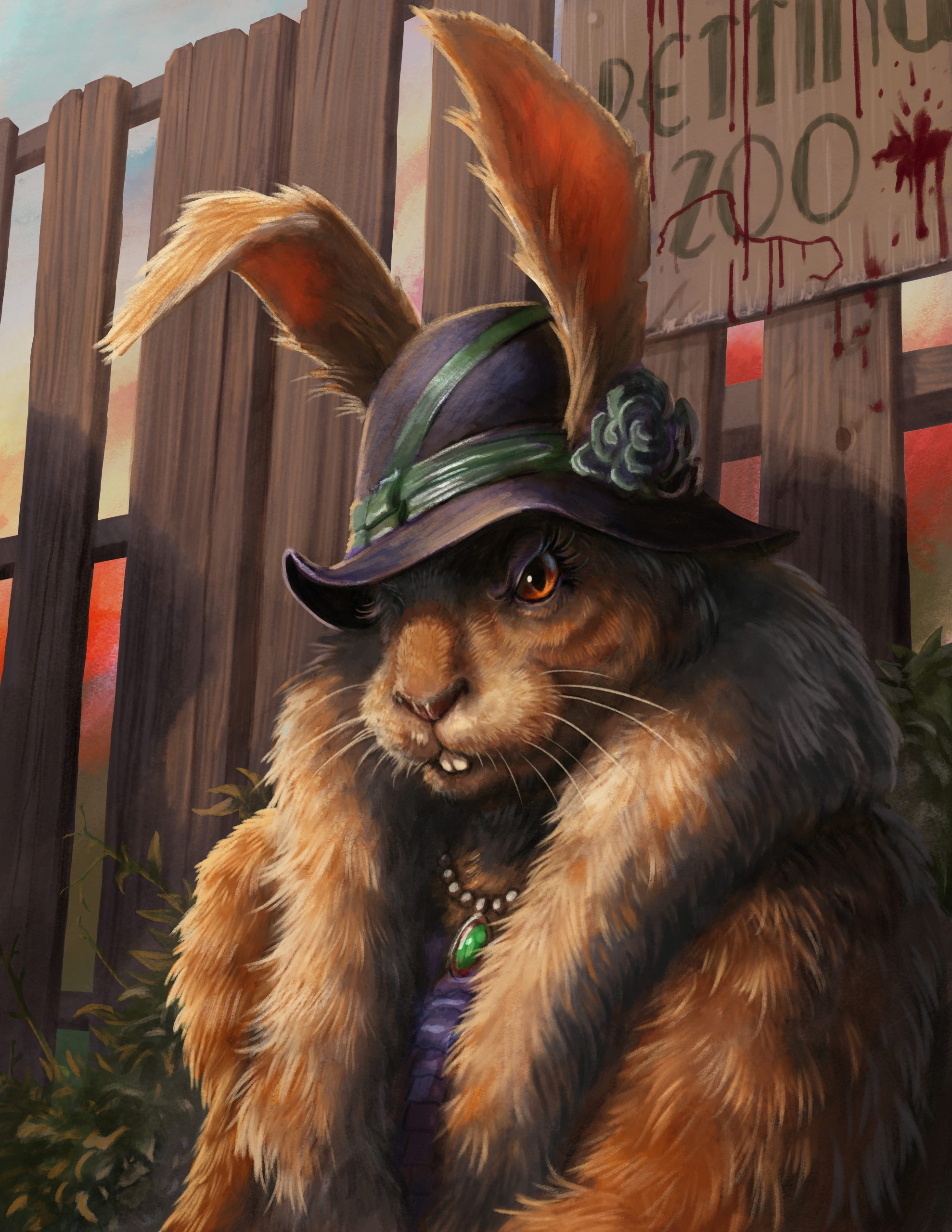
When Magic Breaks the World: How High-Level Spells Change D&D
In Dungeons & Dragons, the journey from 1st level apprentice to 20th level archmage is more than just bigger numbers and flashier effects—it’s a shift in the very rules of reality. At low levels, the  party worries about how many rations they can carry and whether they can afford a mule. At high levels, they worry about whether time itself will hold still long enough for them to finish their plan.
party worries about how many rations they can carry and whether they can afford a mule. At high levels, they worry about whether time itself will hold still long enough for them to finish their plan.
High-level spells—typically 7th level and above—don’t just make characters stronger. They redefine what’s possible, and in doing so, they can dramatically alter the tone, pacing, and stakes of your game. Let’s look at some specific examples, and how they can transform the story you’re telling.
1. Travel Is No Longer an Obstacle
Teleport, Plane Shift, Gate
At low levels, travel is an adventure in itself: navigating treacherous mountains, negotiating with dangerous locals, and surviving the elements. But once someone learns Teleport, that entire phase of play can vanish overnight.
Need to warn the king before the enemy army arrives? In a low-level campaign, that’s a desperate ride across the countryside. At high levels, it’s a 6-second conversation: “Hold hands, we’re going.”
Impact:
-
Removes overland travel challenges and random encounters.
-
Negates many logistical and economic considerations (no more hiring ships, buying mounts, or worrying about food).
-
Allows for rapid-response tactics that can make regional threats trivial.
Tips for GMs: If you still want travel to matter, introduce obstacles like teleportation wards, misdirection magic, or plane-locked zones. High magic worlds will develop magical countermeasures—just as real-world cities develop locks and security systems.
2. Damage on a City Scale
Meteor Swarm, Earthquake, Tsunami
Few spells illustrate the jump from “powerful” to “apocalyptic” like Meteor Swarm. Not only does it deal absurd amounts of fire and bludgeoning damage, it can level buildings and ignite entire city blocks.
Likewise, Earthquake can bring down fortifications, collapse underground lairs, or sink an enemy stronghold. A single high-level caster can do what an army would need weeks to accomplish.
Impact:
-
Vast environmental destruction becomes possible.
-
Military and political balance shifts—why siege a city for months when a wizard can shatter its walls in seconds?
-
Collateral damage becomes a moral and practical consideration for the party.
Tips for GMs: Remember that in a living world, such destructive potential is feared. NPC nations will pass laws, build anti-magic defenses, or hire counter-mages to neutralize threats.
3. Life and Death Lose Their Finality

A monk of the Cobalt Soul sheds light on Wildemount’s past for a band of young adventurers. [Image courtesy Wizards of the Coast]
Resurrection, True Resurrection, Clone
Death used to mean the end of the story. With spells like True Resurrection or Clone, it can be an inconvenience at worst—assuming you can pay the price or plan ahead.
Impact:
-
Dramatically changes stakes in dangerous situations.
-
Allows for more reckless player behavior.
-
Can diminish the weight of loss in the narrative.
Tips for GMs: High-level magic is expensive for a reason—both in gold and rare components. Introduce complications: the soul doesn’t want to come back, divine powers refuse the request, or political forces move during the hero’s absence.
4. Time and Space Are Negotiable
Time Stop, Wish, Demiplane
High-level casters start playing with the building blocks of reality itself. Time Stop gives you up to 30 seconds where the rest of the world can’t act—enough time to set up devastating combos or make a clean escape.
Demiplane creates pocket dimensions for safe storage or prison cells. Wish… well, Wish is the “break the campaign in one sentence” spell. It can rewrite rules, create impossible objects, or bypass entire adventures if you’re not careful.
Impact:
-
Makes certain physical barriers irrelevant.
-
Enables creative problem-solving that can bypass plots.
-
Forces the GM to be ready for anything.
Tips for GMs: With spells like Wish, establish table expectations early. Decide whether you’ll stick strictly to RAW limits or embrace the full, unpredictable power with narrative consequences.
5. Knowledge Is Instant and Perfect

A nilbog as seen in the fifth edition Dungeons & Dragons Volo’s Guide to Monsters. [Image courtesy Wizards of the Coast]
True Seeing, Foresight, Commune, Legend Lore
A clever GM can build an entire campaign around mystery, but high-level divination magic can shatter those carefully planted clues in moments. Legend Lore tells you ancient history on demand. Commune lets you speak directly with gods. Foresight makes a creature nearly impossible to surprise or outwit.
Impact:
-
Mystery-based plots require heavy adaptation.
-
Villains can’t rely on secrecy alone.
-
Players can act with nearly perfect information.
Tips for GMs: Make sure your mysteries have layers that magic alone can’t solve—like conflicting truths, unreliable divine answers, or events so recent that even magic can’t reveal them.
6. Armies Become Obsolete
Mass Heal, Power Word Kill, Mass Suggestion
With Mass Heal, a single caster can instantly restore an entire army. With Mass Suggestion, they can convince that same army to stand down without shedding a drop of blood. And Power Word Kill—if the target is weakened enough—removes a key threat instantly, no matter how well-defended.
Impact:
-
Entire wars can hinge on a single caster’s choice.
-
Traditional military tactics become less relevant.
-
Small, elite magical strike teams replace large armies.
Tips for GMs: In high-level campaigns, think geopolitically. Powerful spellcasters are strategic assets, and factions will fight over their loyalty.
Final Thoughts
High-level spells don’t just make the characters stronger—they make the world smaller. The heroes can cross continents in seconds, tear down cities, rewrite fate, and cheat death. That’s exhilarating for players, but it’s also a challenge for GMs.
The best high-level campaigns lean into this power shift. Build threats that match the scale of the party’s abilities. Challenge them not just with stronger monsters, but with moral dilemmas, magical politics, and consequences that can echo across worlds.
After all, once you can drop a Meteor Swarm on a city, the question isn’t “Can you?”—it’s “Should you?”
Thanks for reading. Until Next Time, Stay Nerdy!!









No Comments